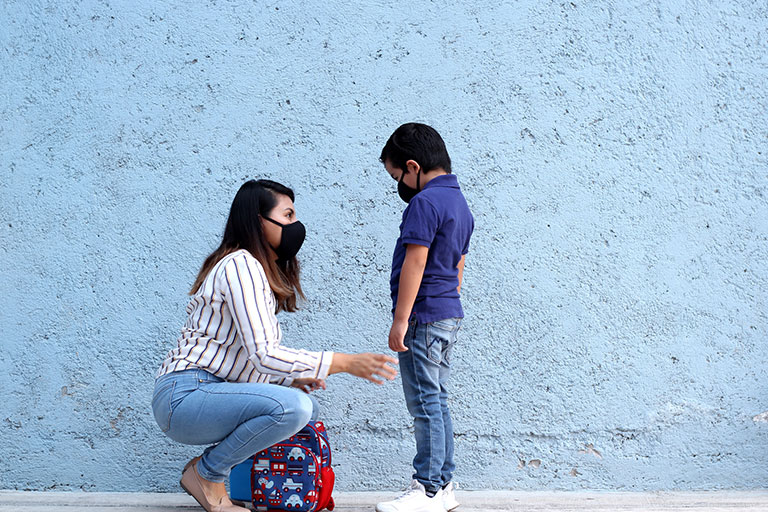October 19, 2020
It is fair to say that all Americans have been impacted by the coronavirus pandemic. But exactly how the virus has affected particular demographic groups who were already at a disadvantage is only beginning to emerge.
Researchers at Indiana University are working to gain a better understanding of how COVID-19 is affecting one of these groups: Hispanics/Latinos living in Indiana. The goal is to meet the clinical and public health challenges faced by this population group.
“Currently, data available are not detailed enough to characterize perceptions, knowledge and practices regarding COVID-19 among Hispanics,” said Gerardo Maupomé, professor and associate dean of research at the IU Richard M. Fairbanks School of Public Health. “A considerable proportion of Hispanics have poor access to health services; because of trust issues, their compliance with public health orders may sometimes be fragmented. Our team is uniquely positioned to address a critical barrier around our understanding of how the pandemic is affecting everyone in Indiana.”
Hispanics are the largest racial/ethnic minority group in the United States. There are currently around 426,000 Hispanics residing in Indiana. Researchers and health officials know that Hispanics have been hit exceptionally hard by the pandemic because of overlapping layers of disadvantage.
For example, Hispanics are often hourly workers with unstable employment and inadequate benefits; some are undocumented immigrants who are not eligible for public assistance protection or access to health care; a good number have low formal schooling and thus are less able to navigate support opportunities from government; and an undetermined number are living as isolated families or individuals lacking social networks to rely on when catastrophic financial or health situations arise. Furthermore, Maupomé said, there is sometimes fear among the Hispanic community that they must avoid official or government entities because a member of the household may have undocumented status.
Paradoxically, Hispanics make up a significant proportion of workers in essential occupations that support the living environment of a large stay-at-home population, with occupations ranging from agricultural jobs to food delivery services, and from meat packing to nursing home aides.
To gain a better understanding of such a complex situation, Maupomé and Brea Perry, professor of sociology at IU, have expanded their long-standing collaboration to examine how networks affect health and disease in a new domain. Building on Perry’s Rapid Response COVID-19 Study, which relied on the Grand Challenges Person to Person Health Interview, Maupomé and Perry have adapted the COVID-19 survey to include variables of unique relevance to Hispanics.
The new survey, called Hispanic COVID-19, or H-COVID, will provide insight into four key areas of the COVID-19 experience for Hispanics – behaviors and attitudes, economic consequences, social networks and supports, and psychological wellbeing. Data collection will be completed in October, and first results will be available in late November.
“To effectively reduce the secondary consequences of this pandemic for social, psychological, and economic wellbeing, we have to ensure that we understand the needs of everybody in Indiana,” said Perry, co-lead of the H-COVID study. “These data will allow us to fill important gaps in our knowledge about how the pandemic has affected groups that are already marginalized, as well as how to tailor public health and clinical responses to the needs of our most vulnerable populations.”




